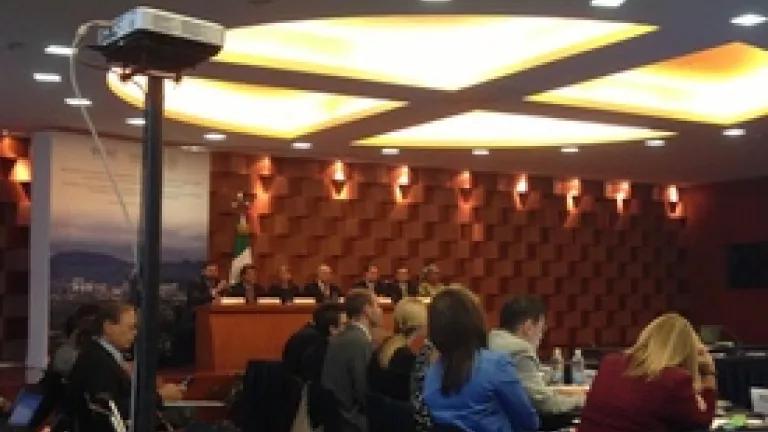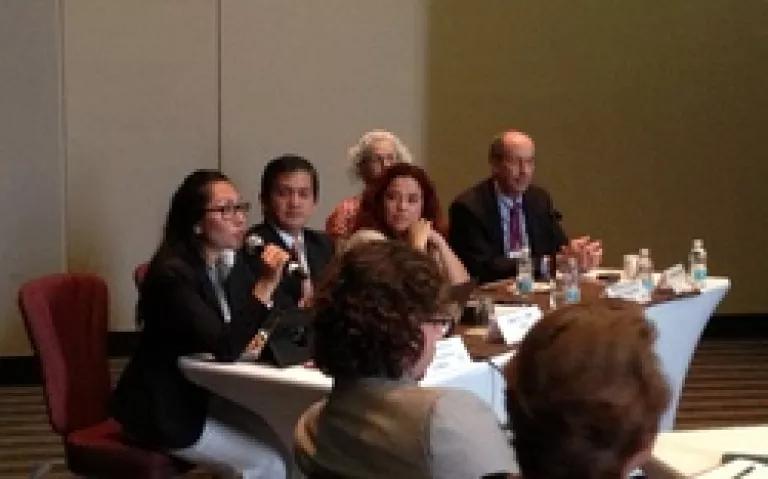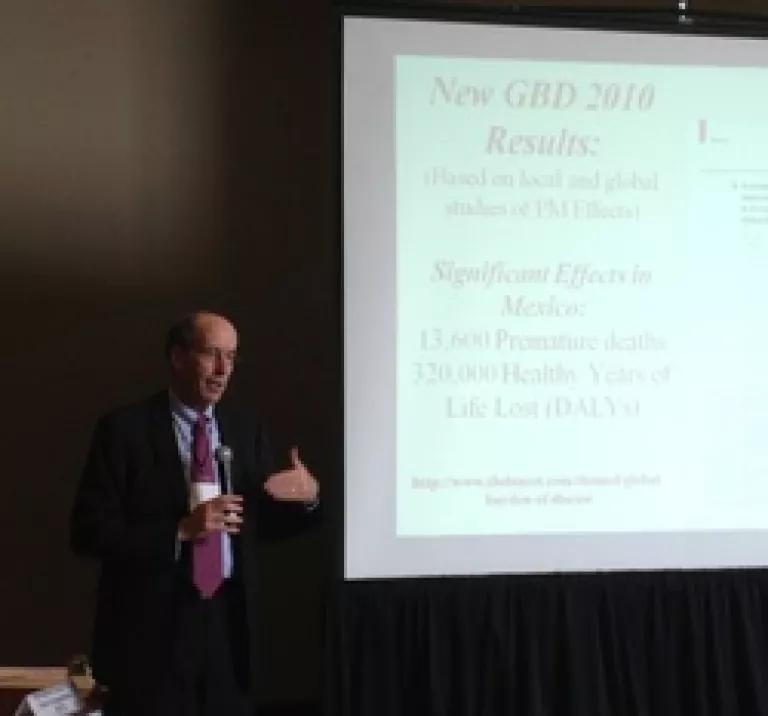
Mexico hosted the Climate and Clean Air Coalition (CCAC) last week which met to discuss current efforts among member countries to limit short-lived climate pollutants and mitigate climate change. While there, I heard encouraging commitments from the Mexican government to reduce one such pollutant, black carbon. I also attended a separate press conference where international experts and local advocates talked about the many reasons why the government should prioritize taking action on those commitments. As the speakers from health, transportation, and environmental organizations presented new data, they all came to the same conclusion: Mexico needs to pass strict standards regulating the quality of diesel fuels and vehicle emissions as soon as possible to avoid continued serious health and climate impacts.
Brief background info about black carbon:
Black carbon is a component of particulate matter (PM2.5) that is emitted into the air when dirty diesel is burned as fuel. Also known as soot, black carbon has terrible impacts on human health and is the second most powerful contributor to climate change. The transportation sector is one of the main culprits contaminating Mexico’s urban air with PM2.5. While Mexico’s air quality is not nearly as bad as it was 20 years ago, there are still 13,000 premature deaths and 300,000 healthy days of life lost annually in the country due to air pollution. Fortunately, solutions to these toxic emissions are known and proven: by reducing the sulfur content of diesel fuel to ultra-low levels, and combining it with particulate filters, we can reduce over 90 percent of black carbon emissions.
The opening panel, including Minister Guerra Abud, welcomes the CCAC members.
At the CCAC meeting, Mexico’s Environment Minister Guerra Abud committed to cleaning up its emissions of particulate matter and black carbon. He emphasized the importance of tackling global climate change and stated that the government and the national petroleum company, PEMEX, would soon present a revised standard to clean up diesel fuel. These encouraging statements indicate that the authorities are not only aware of the problem, but are also taking measures to enact the necessary solutions.
At the independent press conference, Leticia Pineda of the Mexican Center for Environmental Law (CEMDA), made plain the need for the government to act fast. She called for the quick passage of integrated regulatory solutions, urging the authorities and PEMEX to pass new standards making cleaner diesel fuels available nationwide while also passing standards regulating vehicle emissions.

Leticia Pineda of CEMDA
Dan Greenbaum of the Health Effects Institute (HEI) reported that 64 percent of people in Mexico City live close enough to roads that they are likely exposed to high levels of traffic-related air pollution. HEI’s study found that students attending schools near heavy-traffic roads have a higher risk of asthma and that adults have to skip work due to health complications stemming from air pollution. More missed working days results in lower economic activity. This is therefore also an economic problem as well as a health and climate one.

Dan Greenbaum of HEI
Kate Blumberg of the International Council of Clean Transportation pointed out that one truck in Mexico emits as much as 40 times the pollution as a truck built according to clean technology standards. She underscored that these clean trucks do exist, and are widely distributed in other countries, so it is not such a stretch for Mexico to have them, too. In fact, with cleaner, more efficient vehicles, truck owners will not have to buy as much fuel to carry their freight as they currently do, so the regulations will have financial boons for the heavy duty transport sector. ICCT’s excellent new Briefing Paper on this issue is available here.
Sergio Sanchez, director of the Clean Air Institute, said that two thousand tons of black carbon are emitted in the Mexico City metropolitan area every year, 66 percent from buses and trucks. He also underscored the fact that new financial mechanisms exist to help governments enact new transportation solutions.
The information and new data released at the press conference revealed that the health and climate impacts of PM2.5 and black carbon are grave, and should be of utmost governmental import. The Ministry of Environment proved itself an excellent host to the CCAC, and has made plain its intentions to regulate these deleterious emissions. Yet stakeholders need to keep the pressure on the government to ensure that air quality remains a priority now that the CCAC has left town, and that these promises become reality.

